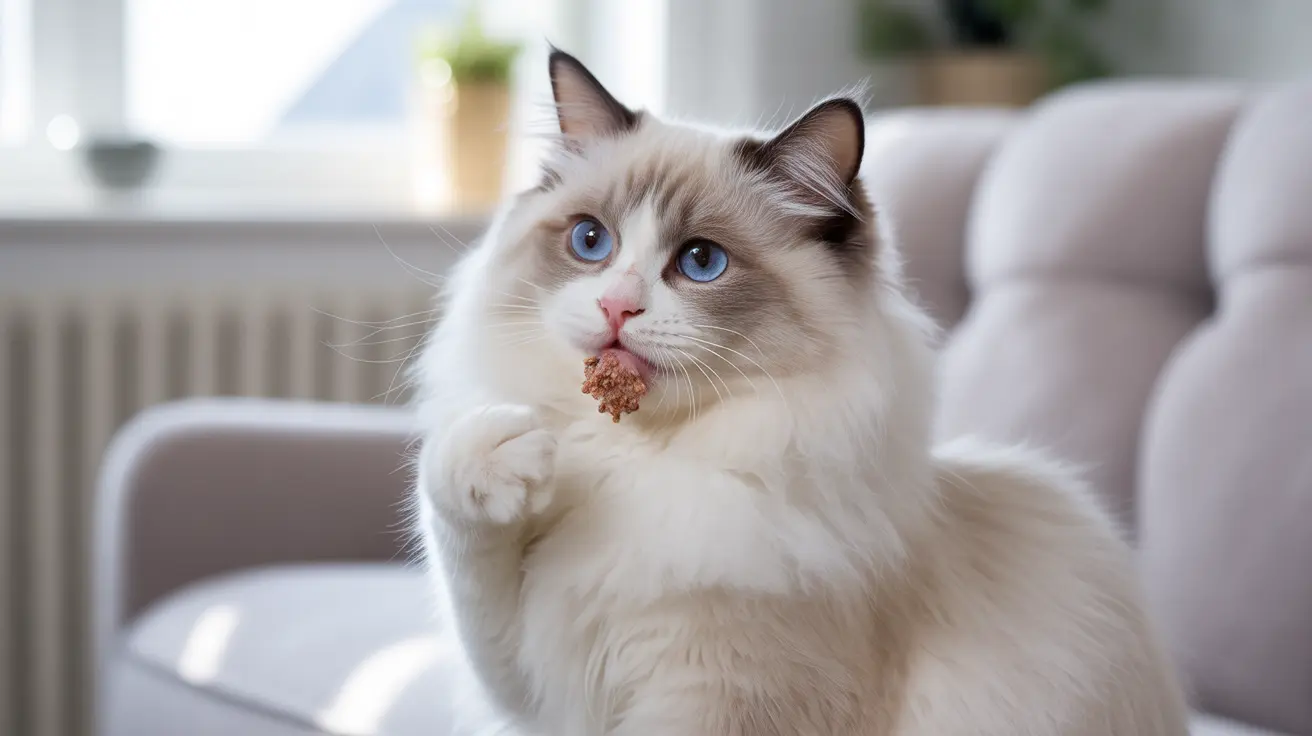Common Causes of Mouth Scabs in Cats
Feline Acne and Skin Conditions
One of the most frequent causes of scabs around a cat's mouth is feline acne. This condition typically appears as black spots or crusty areas on the chin and around the mouth. Plastic food bowls, poor grooming habits, and bacterial overgrowth can all contribute to this condition.
Allergic Reactions
Food allergies, environmental allergens, and contact sensitivities can trigger skin reactions around your cat's mouth. These allergic responses often manifest as red, itchy areas that develop into scabs due to scratching and irritation.
Infections and Parasites
Viral and Bacterial Infections
Various infections can cause sores and scabs around your cat's mouth. Calicivirus and herpesvirus are common culprits, often accompanied by other symptoms like sneezing and eye discharge.
Parasitic Infestations
Fleas, mites, and other parasites can cause skin irritation leading to scabs. These parasites often trigger intense itching, causing your cat to scratch excessively and create secondary skin damage.
Dental and Oral Health Issues
Periodontal disease, tooth root abscesses, and stomatitis can all lead to oral pain and inflammation that may result in external sores and scabs. These conditions often require professional dental intervention.
Treatment Approaches
Home Care and Prevention
Basic care steps include switching to stainless steel or ceramic food bowls, maintaining regular grooming routines, and keeping your cat's environment clean. These measures can help prevent recurring issues.
Professional Veterinary Care
For persistent or severe cases, veterinary treatment may include:
- Topical medications or antibiotics
- Dental cleaning or extractions
- Allergy testing and management
- Parasite control medications
When to Seek Veterinary Care
Contact your veterinarian if you notice:
- Scabs that persist longer than a week
- Signs of infection or spreading
- Changes in eating habits or behavior
- Additional symptoms like fever or lethargy
Frequently Asked Questions
What are the most common causes of scabs around my cat's mouth?
The most common causes include feline acne, allergic reactions, parasitic infestations, and dental problems. Environmental factors like plastic food bowls can also contribute to the development of scabs.
How can I tell if my cat's mouth scabs are due to feline acne or an infection?
Feline acne typically appears as black spots or small scabs primarily on the chin, while infections often cause more widespread sores and may be accompanied by additional symptoms like fever or lethargy.
What treatments are effective for healing scabs and sores around a cat's mouth?
Effective treatments depend on the underlying cause but may include topical medications, antibiotics, switching to metal food bowls, and addressing any dental issues. Your veterinarian can determine the most appropriate treatment plan.
Could allergies or parasites be causing my cat's mouth scabs, and how do I prevent them?
Yes, both allergies and parasites can cause mouth scabs. Prevention includes regular flea treatment, identifying and eliminating allergens, and maintaining good environmental hygiene.
When should I take my cat with mouth scabs to the vet for diagnosis and care?
Seek veterinary care if scabs persist longer than a week, appear infected, cause behavioral changes, or are accompanied by other symptoms like decreased appetite or lethargy.
Conclusion
While scabs around your cat's mouth can be concerning, understanding their potential causes and appropriate treatment options helps ensure proper care for your feline friend. Remember that early intervention and proper diagnosis are key to successful treatment and prevention of future occurrences.






